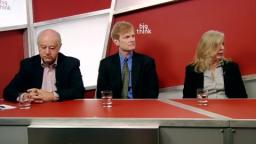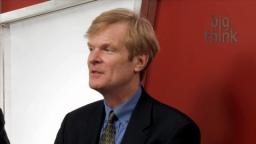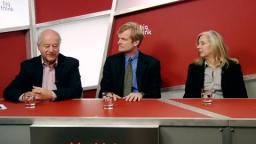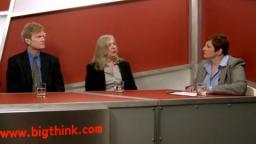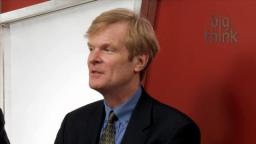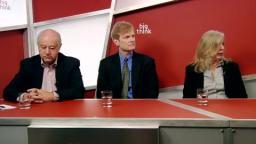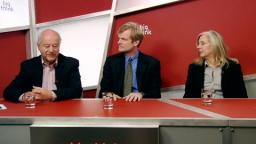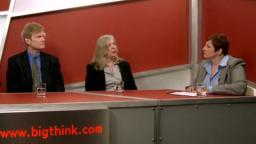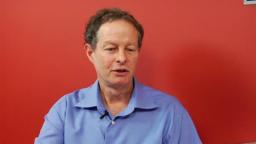All Videos
All Stories
Autism sufferers unquestionably have feelings. It’s processing those feelings—and reading them in others—that they struggle with.
▸
5 min
—
with
Autism isn’t on the rise: it’s just getting defined better, and diagnosed more.
▸
4 min
—
with
Many kids are vaccinated at age two, the same age at which autism is often first noticed. But the “evidence” that one causes the other doesn’t wash.
▸
6 min
—
with
There is not a single gene that triggers autism, but more likely dozens that enhance the risk of autism. On the other hand, researchers have found that environmental variables like […]
▸
5 min
—
with
Christopher Walsh: The symptoms of autism are far better understood than its causes; psychiatrists classify the disorder as having two major components: impaired social cognition and a tendency toward narrow […]
▸
5 min
—
with
A conversation among leading experts highlighting cutting-edge autism research.
▸
34 min
—
with
Autism science is making great strides, but the search for a cure remains “a marathon, not a sprint.” The challenge is not one disorder but many.
▸
2 min
—
with
Four out of five autism sufferers are male. Is something in men’s genes—or brain structure—causing the gap?
▸
4 min
—
with
New drugs for ASD patients may be on the horizon, but “early, intense” behavioral treatment remains “the very best intervention for autism.”
▸
2 min
—
with
Autism isn’t on the rise: it’s just getting defined better, and diagnosed more.
▸
4 min
—
with
Autism sufferers unquestionably have feelings. It’s processing those feelings—and reading them in others—that they struggle with.
▸
5 min
—
with
Many kids are vaccinated at age two, the same age at which autism is often first noticed. But the “evidence” that one causes the other doesn’t wash.
▸
6 min
—
with
There is not a single gene that triggers autism, but more likely dozens of genes that enhance the risk of autism. Researchers have also found that certain environmental variables, like […]
▸
5 min
—
with
Susan Bookheimer: The symptoms of autism are far better understood than its causes; psychiatrists classify the disorder as having two major components: impaired social cognition and a tendency toward narrow […]
▸
5 min
—
with
A conversation between some top experts highlighting cutting-edge autism research.
▸
34 min
—
with
The most important thing to remember about grassroots fundraising is that donations are often in support of a relationship as much as they are in support of a cause.
▸
2 min
—
with
Crowdrise was much less expensive to set up than everyone originally said; websites don’t have to be top-heavy or front-loaded, says Norton.
▸
1 min
—
with
Though some have questioned the substance of social networking, Norton believes we are just beginning to grasp its full power.
▸
1 min
—
with
The idea for Crowdrise came from Norton’s experiences trying to raise money for the New York Marathon.
▸
2 min
—
with
The philanthropist explains how his website Crowdrise seeks to combine the experience of social networking and the substance of being involved in good causes. Engagement with an issue you care […]
▸
1 min
—
with
Stephen Wolfram ponders what a unified theory of the universe might look like.
▸
8 min
—
with
We have discovered ways to automate some discoveries. But are our axioms necessarily the result of the evolution of human thought anyway?
▸
4 min
—
with
What if science could describe the universe in terms of a computer program? Would that program be incredibly complex or incredibly simple?
▸
7 min
—
with
Wolfram Alpha had essentially been in the works for 25 years, but the time wasn’t right until last year to unveil it to the public.
▸
6 min
—
with
Unlike search engines like Google or Bing, Wolfram Alpha actually computes new knowledge rather than searching through previously published material.
▸
5 min
—
with
A Conversation with the physicist and businessman.
▸
28 min
—
with
Criticism—be it from protesters or even competitors—can have truth to it. If the criticism is valid, you can learn from it.
▸
2 min
—
with
Defining a company’s purpose may begin with the philosophy of an entrepreneur. But, over time, the contributions of team members and stakeholders will naturally change a company’s destiny.
▸
1 min
—
with
By criticizing Whole Foods, writer Michael Pollen helped it become a better company, says Mackey.
▸
4 min
—
with
The economic downturn meant there was a greater need to differentiate from competitors—and to create more value for customers who were looking to spend less.
▸
2 min
—
with
